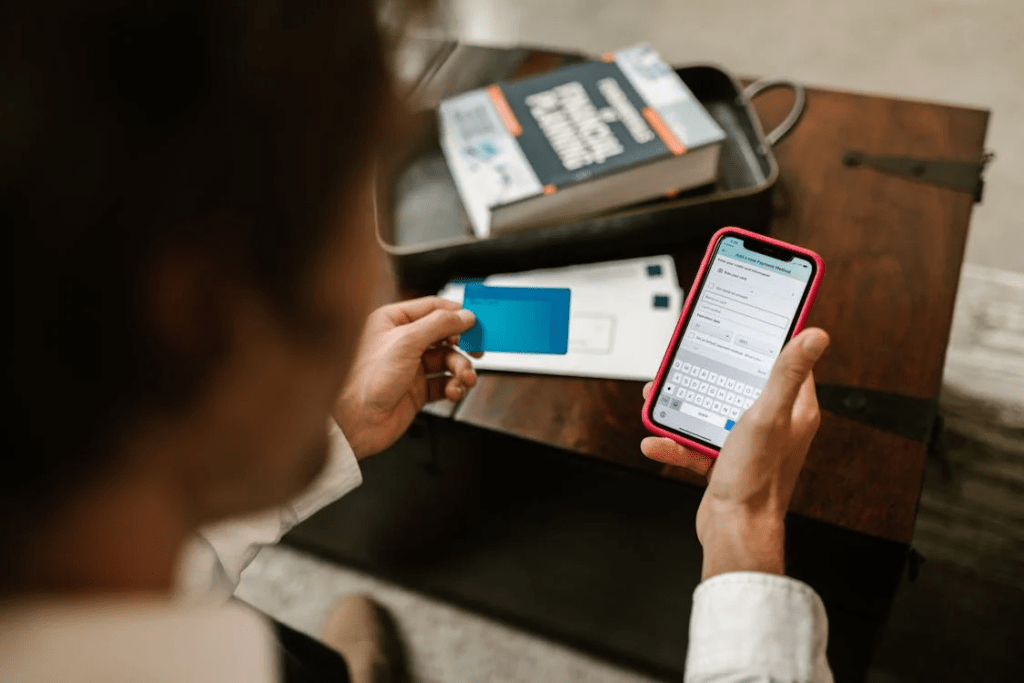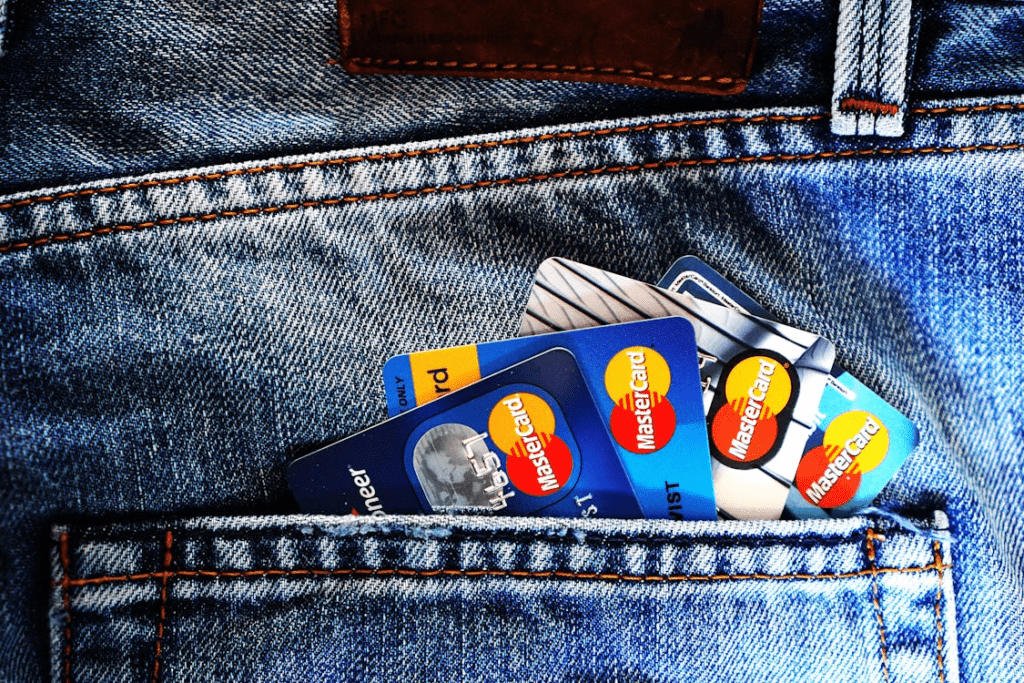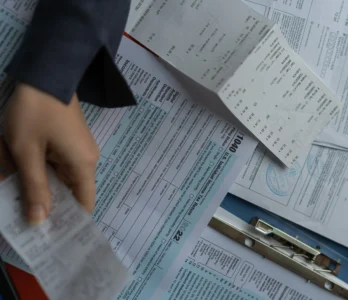Credit card payments have become quick, convenient, and almost seamless. While the quickness of processing and ease of use are considered to be advantages, there are still many dangers and risks, including fraud. Credit card fraud is one of the most common financial crimes in today’s digital age. It involves bad actors accessing your financial information and using it to commit various crimes.
Taking precautionary steps to prevent credit card fraud is one of the ways to avoid it, but sometimes, it’s not enough.
In this article, we share how to identify and report credit card fraud to help you mitigate any damages from falling victim to fraudsters.
What Is Credit Card Fraud?

Credit card fraud is a criminal activity where a fraudster steals a victim’s credit card and uses it (or its details) to make online purchases, withdraw money, or create a clone identity by opening new cards in the person’s name.
Credit card theft could occur physically or remotely. In a physical theft, the fraudster steals the physical plastic card or uses a card skimmer to steal the victim’s details. In a theft that occurs remotely, the fraudster steals the details from the victim by intercepting their data online.
Credit card fraud differs from credit card scams in that the victim is unaware of the incident and does not permit the criminals to use their card information. In a scam scenario, the card owner is tricked into providing their card details or transferring funds from the card.
Types of Credit Card Fraud
Credit card fraud complaints come in two broad categories:
- New account fraud—Using the victim’s account information to create a new credit card account for criminal purposes
- Existing account fraud—Changing information of the stolen credentials to lock out the original card owner
These broad categories of credit card fraud can be divided into common schemes and tactics through which fraudsters operate.
Here’s how the fraud could occur:
| Type of Credit Card Fraud | How It Happens |
| Card theft | The card is stolen through pickpocketing, mail theft, or data breaches in stores or places where you may have used the card. It’s then used to make payments or purchases |
| Account takeover | The fraudster modifies your card information and spending limits by pretending to be you. They steal the data online through data breaches or phishing scams |
| Card-not-present (CNP) fraud | The fraudster uses the card details to pay for goods and services without having a physical card. They only need the card information and personal identity details of the victim to use the card |
| Cloned cards | It’s a sophisticated type of fraud where the criminal creates a duplicate card using the existing credit card information. They sometimes buy the card details from the dark web |
| Application fraud | The fraudster pretends to be the card owner and uses their personal information to apply for and open a new credit card account |
With so many sophisticated defrauding tactics out there, it is necessary to understand how they happen and what signs to look out for to be able to detect credit card fraud.
How To Detect Credit Card Fraud
Detecting credit card fraud quickly can help reduce the damages that could ensue from the incident. If you’re wondering how to spot fraudulent activity on your credit card account, look out for the following:
- The usual red flags
- New accounts opened in your name
- New credit denial
The Usual Red Flags
There are some tell-tale signs of fraud that you can spot from a mile away. If you notice suspicious purchases on your credit card account statement, it’s a sign to look more closely at it. Any signs of unauthorized purchases or multiple failed transactions in a row are a warning that fraudsters may have compromised your account.
Some other red flags include:
- Incorrect attempts to enter the card number
- Multiple unusual spam emails
- Transactions from outside your location or a foreign country
- A sudden large withdrawal or purchase
- Transactions that happen at odd hours
New Accounts Opened in Your Name
When application fraud occurs, you may receive a bill from a new lender or a collection agency asking you to repay a debt you know nothing about. To protect your identity and stop additional accounts from being opened in your name, you should immediately place a freeze on your credit report.
Strange new accounts like these may also be caused by an error from your bank or credit bureau, so check in with your provider to determine if it’s truly identity theft or a mere mistake.
New Credit Denial
If you attempt to open a new credit card and are denied credit, it could be that some suspicious activity on your account has ruined your credit score. While most credit card companies will not hold you liable for credit card fraud, your credit score will likely be damaged if the fraud goes unchecked for a long time.
If you spot inaccurate charges on your account, you should immediately report the inconsistencies to the major credit bureaus so they can be removed.
How To Report Credit Card Fraud

Falling victim to credit card fraud can be alarming—taking prompt action helps to put the potential damages that could ensue behind you quickly. Here’s how to report possible credit card fraud on your account:
- Inform your credit card provider promptly
- Alert credit bureaus about the fraud
- Report the fraud to the police and the FTC
Inform Your Credit Card Provider Promptly
Contact your credit card provider if you suspect criminal activity on your card. Promptly call the card issuer’s phone number on their official website, phone app, or the back of the card and inform them you were a victim of fraud. This will enable them to immediately start an investigation and place more protection on your account.
Find contact numbers for some of the major card issuers in the U.S. in the table below:
| Credit Card Issuer | Contact Number |
| American Express | 1-800-528-4800 |
| Wells Fargo | 1-800-642-4720 |
| Discover | 1-800-347-2683 |
| Bank of America | 1-800-732-9194 |
| Capital One | 1-800-227-4825 |
Your liability in case of credit card fraud largely depends on how quickly you report the incident. Don’t hesitate to contact the credit card issuer as soon as you detect fraudulent activity.
Alert Credit Bureaus About the Fraud
Place a fraud alert on your credit report via the major credit bureaus (Experian, Equifax, and TransUnion). This informs creditors to check with you before they approve new credit accounts or modify your existing ones. It warns them to take precautionary measures before releasing funds in your name. You must remove these blocks before any credit applications can be approved.
Report the Fraud to the Police and the FTC
Credit card fraud is a known crime that could lead to identity theft. Immediately report the crime to the police so they can open a file detailing the incident. Keep a record of this file as it will prove helpful in supporting your fraud claim investigation. You should also report the fraud to the Federal Trade Commission (FTC) via their recommended procedure.
How To Protect Yourself Against Credit Card Fraud

If you adopt the following practices, you may be able to evade credit card fraudsters and the effects of their activities:
- Keep your credit card safe—When you go out, protect your card by storing it in a secure wallet that’s out of reach of the public. Avoid leaving it on the tables in restaurants or in visible spots in your car
- Protect your PIN—Never share your PIN with anyone, regardless of who they are. If you must use it in public, ensure that nobody is spying on you (including cameras)
- Use contactless payment—Whenever possible, pay via your smartphone or by tapping your card on the payment devices. This is a more secure option, and you’re less at risk of card skimming
- Lock your accounts—Many credit cards now offer a card lock feature to protect your account until you can report it as compromised. Use it to block new transactions from being processed without interfering with the regular payment set-ups already existing on the card
- Move your funds into a fraud-protected storage platform—If fraudsters compromise your credit card account, your other financial accounts may also be at risk. With your personal information, they could breach your bank account and empty it within minutes. Get one step ahead of the fraudsters by moving your funds into more secure storage like FortKnox





